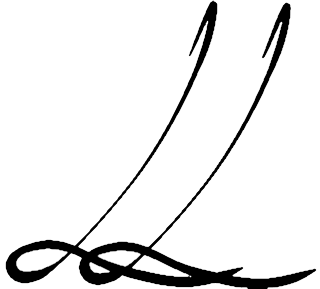My background
A little over a month ago I became a technical writer at Suborbital Software Systems and am absolutely loving my work and my team. I've had quite a few people ask me how I got into the field, so I figured I should centralize my response here. The TL;DR version is: I got into technical writing by blogging my progress as I learned data science. Or if you're interested in the (much) longer version, I've got you covered below!
My background is in math: I have a B.S. and M.S. in math, and taught math at CSU East Bay in the SF Bay Area for six years (three years as a grad student and three years as a lecturer). When I found out how little I would earn as a lecturer (after I was already working as one), I knew I couldn't stay in academia and looked into pivoting into tech. It seemed the most obvious path from math into tech was through data science, so that's what I set out to do.
The part where I thought I'd become a data scientist
Early on my learning journey I found fast.ai and read Rachel Thomas' post Why you (yes, you) should blog, whose central thesis is that wherever you are in your learning progression, you're the person in the best position to give advice to someone one step behind you on the same path. So as I learned I blogged, always writing with my recent self as my imaginary audience. I submitted many of these posts for publication by Towards Data Science on Medium, and slowly grew a little audience. I also posted my blog posts on Twitter and after a while, my posts together averaged about 1.3k views per week.
I worked on learning data science in fits and starts (since I was teaching and also have three children), and after a couple of years of this I was just about ready to start interviewing in earnest. On the strength of my data science blogging, I had a couple of publishers reach out to me out of the blue to discuss writing books on becoming a data scientist (which felt a bit odd, given that I hadn't actually become a data scientist yet!).
But I had grown to deeply love teaching, especially since we'd gone fully remote in March of 2020 (I didn't love the reason we'd gone remote, of course!). Over the years I'd invested countless hours of my own time researching math pedagogy and how to teach math from a social justice viewpoint, and I dreaded losing that part of myself. I tried to remind myself not to perform unpaid labor, but I couldn't stop myself constantly trying to improve things for my students. I hated the idea of leaving them, and wasn't in much of a hurry to complete my career pivot.
The part where I stopped fighting my inner educator
Then last November, the CSU announced all courses would be taught in person in Spring of 2022. I have asthma and highly reactive airways, so I'm deeply apprehensive about catching Covid. I had already accepted three courses to teach, but had to give them up since I couldn't teach in person. The last day of the fall semester was my last day teaching and I could barely keep it together.
Serendipitously, tech Twitter started talking a lot about technical writing that week. I looked it up, and found this description of a technical writer's skills:
- Write clearly in English. We don't care whether English is your first language or your tenth; we only care about the quality of your writing in English.
- Learn complex technologies relatively quickly.
- Explain complex technologies in useful ways for the target audience.
- Wield strong interpersonal skills.
- Understand code.
Technical writers are rare hybrids, possessing an uncommon mixture of talents.
Technical writing was the intersection of the teaching and tech learning I was already doing! I could keep teaching, just in a different way, and make use of all the skills I'd developed over the last few years, not just one subset or the other. I was apprehensive about pivoting my pivot, so to speak, but this felt so right in a way that data science alone never really had. So I rewrote my resume and updated my website, LinkedIn, and Twitter bio.
Job hunting for tech writer roles
And crucially, I added myself to the Diversify Tech job board. I didn't know this would happen, but the following week I was featured in their newsletter and got cold emails from three startup founders that morning (one of which was the founder of Suborbital!). I'm forever indebted to Diversify Tech for helping me start my job search with such a boost! I also applied to jobs I found on LinkedIn and the Write the Docs Slack channel, and ended up with interviews with quite a few companies. From that first contact, though, Suborbital was the one I was hoping for and measuring all others against, so I couldn't have been happier when they made me an offer (and I could turn down other offers and interviews).
Even though I was blogging about learning data science—not a topic particularly closely related to the content I now work with—my blog posts demonstrated that I could:
- Learn complex and technical content
- And explain it well and in a friendly, engaging manner
- Read and write code
- Get myself unstuck when concepts were tricky
- Recognize when to move on when I'd been stuck for a while and couldn't get unstuck
- Perform basic Git interactions and had some basic projects on my GitHub
These are skills essential to pretty much any technical writing job. Each company will have a different tech stack and different needs, but the skills I've listed above are universal. Feel free to specialize, but not at the expense of any of these universal skills!
So. my advice to aspiring technical writers is:
- Pick a technical concept you want to learn, and blog as you learn it. Write the article that would have helped you last week, and next week write the article that would have helped you this week (I literally did this, totally works!).
- Post questions on forums, and link to your question post in your blog for that week! This serves two purposes: you'll be networking on the forum, and showing that you know how to ask good questions and learn from the answers. That ability is super important!
- Get yourself on GitHub. It's truly okay that what you're putting on there is absolutel beginner content!
- Join groups like Write the Docs
- Get comfortable being uncomfortable, because that feeling is your new shadow when you work in tech. There'll always be an avalanche of new and amazing stuff, and you'll never catch up and that's totally cool! Fear tells us what we have to do.
I wish you all the best on your technical writing journey!






